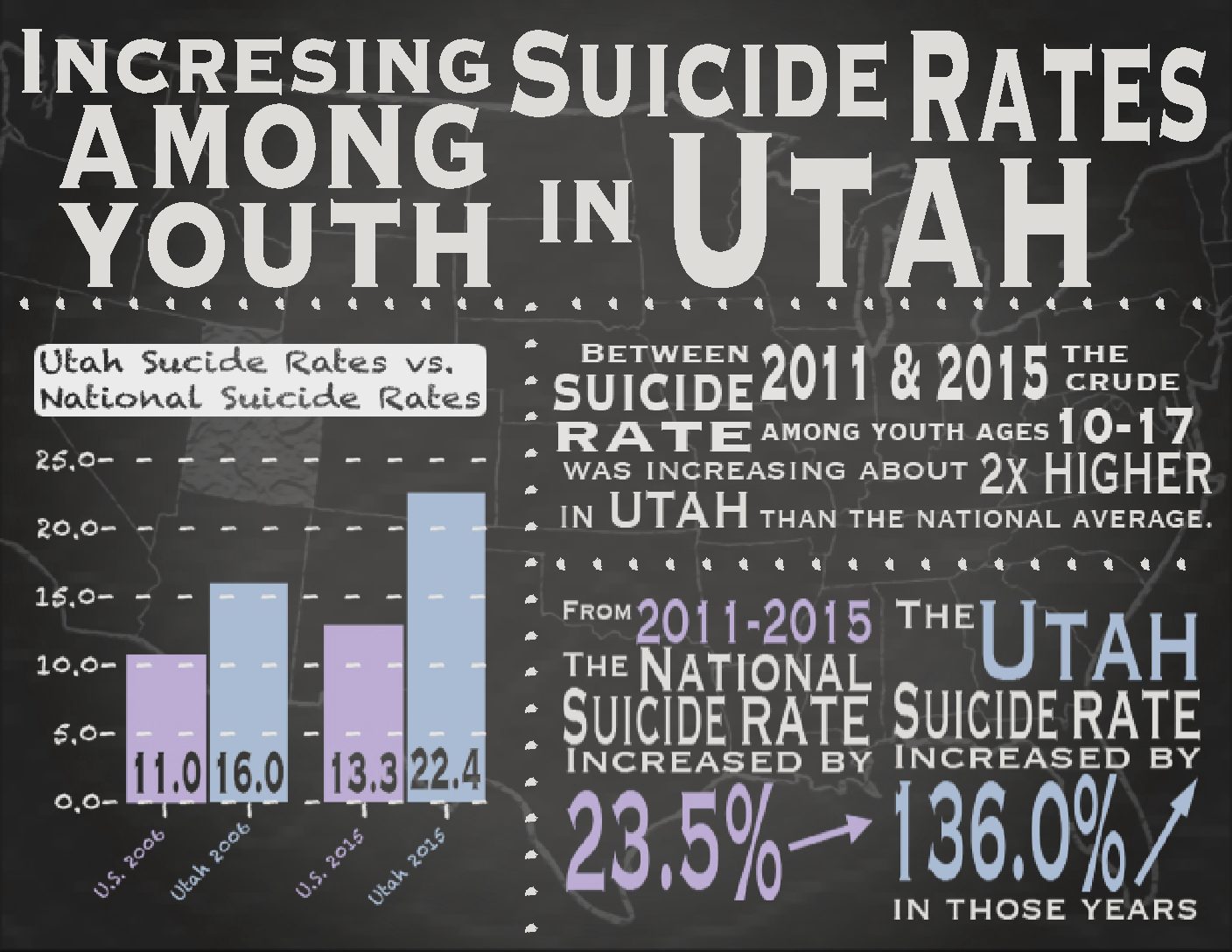Utah sees dramatic increase in teen suicide over four year period
According to a 2017 study released by the Federal Centers for Disease Control and Prevention, there has been a 136 percent increase in Utah suicides over the last four years.
The CDC found in a study from 2011-2015 the suicide rate among Utah youth aged 10-17 was on average, two times higher than then crude suicide rate among U.S. youth, among other things.
The CDC also found the crude annual suicide rate among Utah youth increased at a faster rate (22.8 percent per year) than of U.S. youth (6 percent per year).
The CDC found additional data that may have a connection to the large increase in suicide rates among youth: approximately 40.4 percent of youth who died by suicide identified as being religious, with the majority affiliated with the Church of Jesus Christ of Latter-day Saints.
During the 2018 Sundance Film Festival Dan Reynolds, the lead singer of Imagine Dragons, released a documentary called “Believer,” exploring how the LDS Church treats its LGBTQ+ members due to the results of the CDC study.
Only 27.4 percent of respondents in the study had available information on their sexual orientation, and 15 percent identified as gay or lesbian according to the CDC.
Due to the small amount of information gathered on sexual minority youth, no further investigation was conducted on its affiliation with increased suicide rates, according to the CDC.
Reynolds took his own experience with the LDS church and made the connection between how the LDS church treats their LGBTQ+ youth members.
“You should not feel pressured or rushed to reach conclusions about your sexuality,” the LDS church website encourages those who think they may be gay,
The website also says, “if you decide to share your experiences of feeling same-sex attraction or to openly identify as gay, you should be supported and treated with kindness and respect, both at home and in church.”
There are many obstacles the LDS church and the LGBTQ+ community have to go through, although the increased suicide rates among Utah youth may be unrelated to their issues.
Another one of the CDC’s focuses was on three youth suicide prevention programs – QPR (Question, Persuade and Refer), Hope Squad and Hope for Tomorrow..
The CDC found the programs were not rigorously evaluated on their effects on suicidal behavior, but found they do show some positive results. It was found that all the programs spread awareness on suicide, are active in their communities and help increase knowledge about and recognition of signs and symptoms of mental illness.
WereWolf74_

